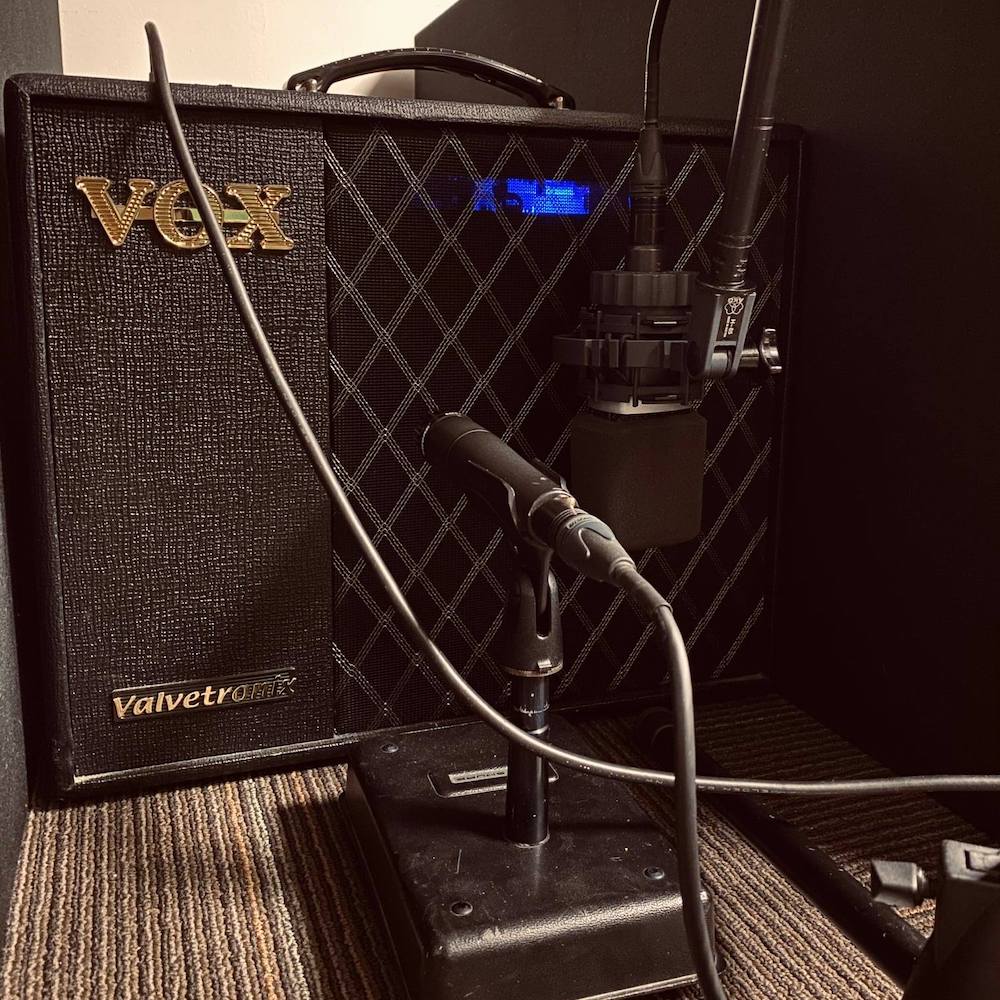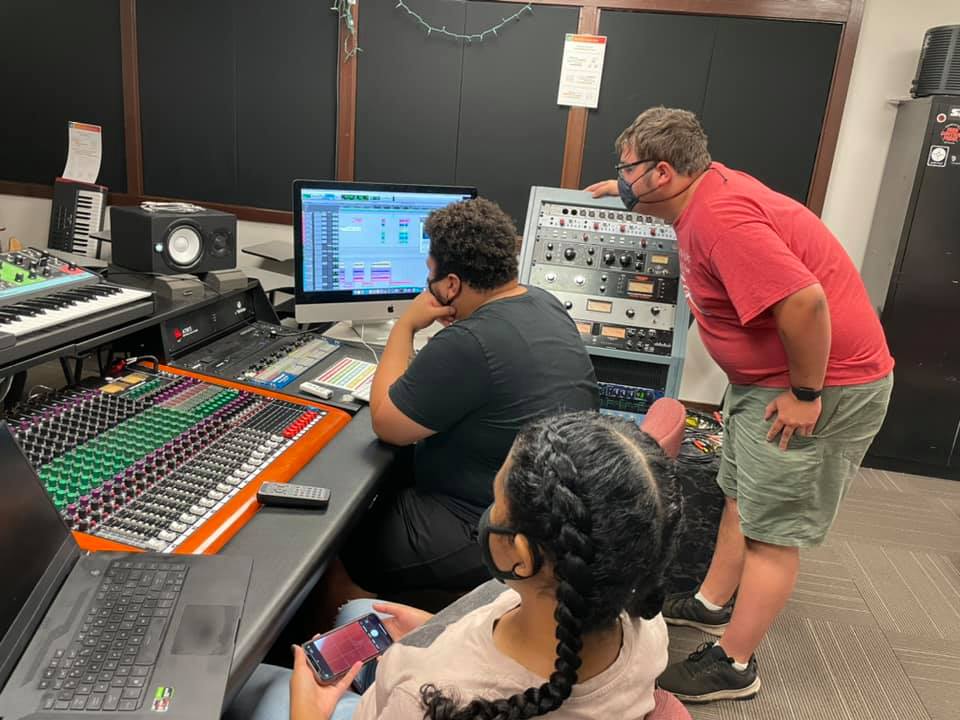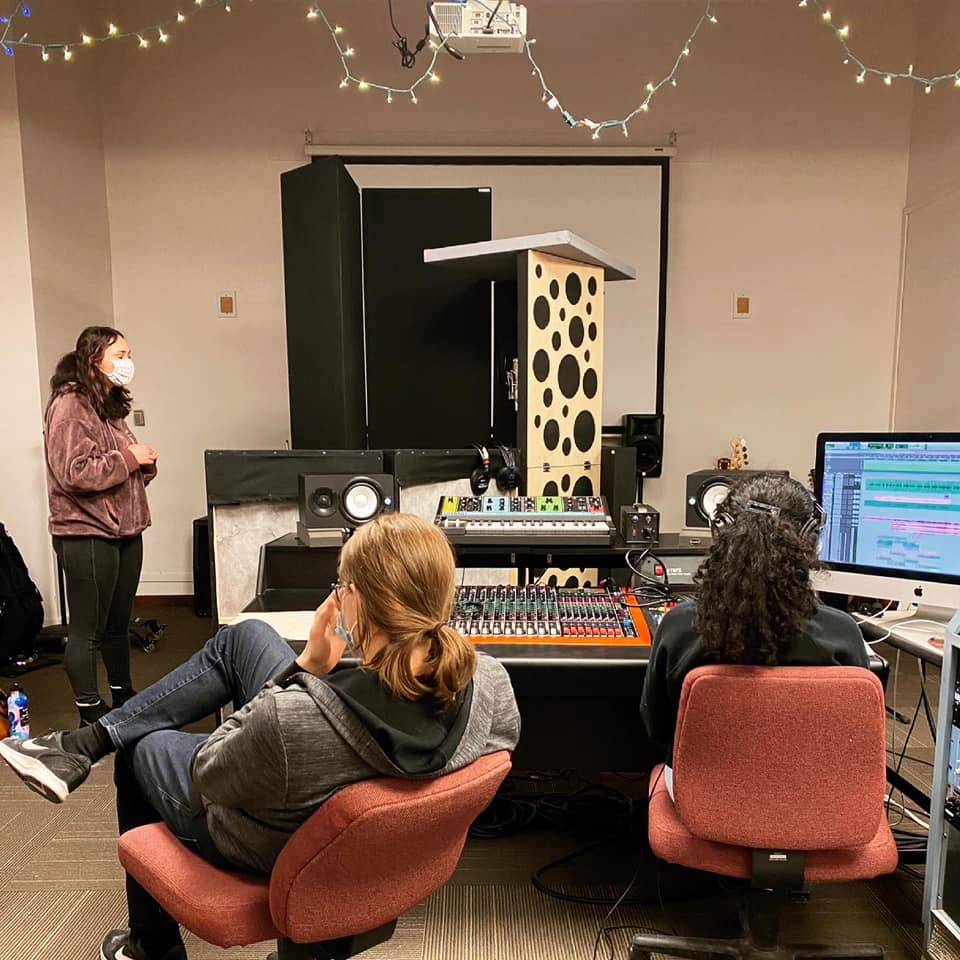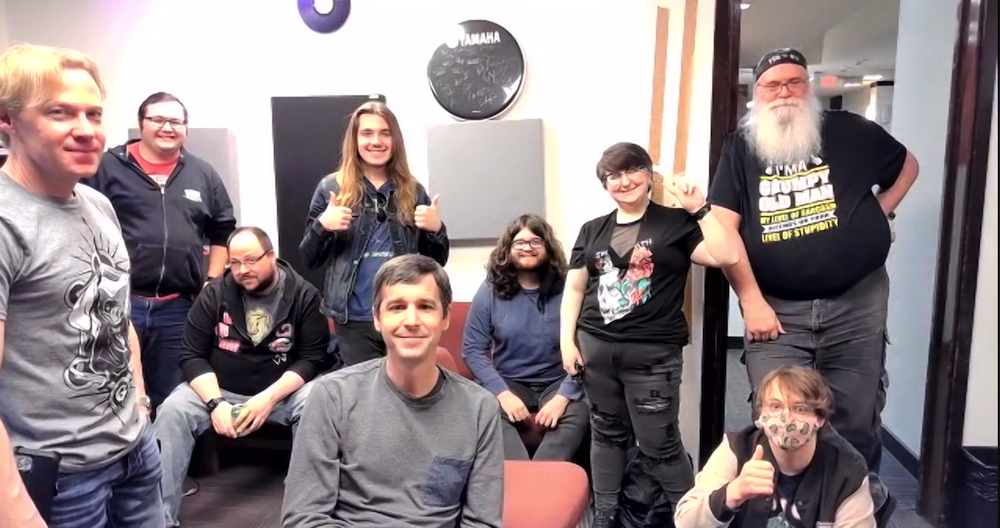Editor’s note: Due to forecasted weather on April 30th, this event has been rescheduled to Saturday, May 7th, 12 p.m. to 7 p.m.
If you weren’t aware, Parkland College has a kick-butt record label Perimeter Road Sound Recordings. Made up of students, the goal is to work with local and up and coming bands to create professional recordings and promote the bands, as well as the label. The label also puts on the annual Perimeter Road Music Festival. This year’s fest is on Saturday, April 30th, at 12 p.m.
The majority of the students are Media Production Majors, which is in the communications program. The major gives students the opportunity to work in radio, music recording, video, as well as more traditional communications courses. I sat down over Zoom with the members of Perimeter Road Sound Recordings to discuss the upcoming music festival and the hard work and planning that goes into a festival like this. The group is Deane Geiken, Adam Porter, Eli Bruker, Micah Wurthmann, Joseph Debusky, Robert Goode, Chuck Mingee, Jarod Lake, and Maggie O’Brien.
Smile Politely: So can you guys tell me a little bit about Perimeter Road? What is it and what do you do?
Eli Bruker: Perimeter Road is a student-run record label where we take what we’ve learned from classes, and apply that towards signing record deals and distributing them for streaming or physical release.
Maggie O’Brien: We’ve also been in the production of creating a music festival. This is the second year we’ll be doing that. Like Eli said, we’d basically go out and try to find as many musical talents as possible to throw them together and do a music festival, and do our best to make it the most rocking thing ever.
Adam Porter: I’d also just tack on to that, kind of the main objective of the label is giving these students the opportunity to kind of branch out beyond just the classes and the class projects and to do something that’s more tangible and real world. We call it a co-curricular group in that, like Eli said, they’re taking things that they’re learning say in the recording classes and then applying them to real projects that are going to be released globally. They can put it on their resumes, get real engineer experience, real event planning experience, et cetera.

Image from Perimeter Road’s Facebook page.
SP: How did the festival first come to fruition?
Porter: It’s been a while since the first festival. None of the students here were actually a part of the label when we did the first music festival. The first festival was in 2019, and then we unfortunately had to cancel in 2020 and 2021.
The idea with the first festival was really that we had been doing what I primarily envisioned the label doing, which was signing great local talent, uh, working with them for two semesters on recording an album, and then a second semester of mixing, mastering and actually releasing and promoting that album. But I found that there were a couple of things that students were interested in that they weren’t getting experience with as part of the label and really the big thing that stood out was live music. That’s one of the first entry points for an engineer or somebody who wants to get into the sound biz and we weren’t really giving them any opportunities to do anything with live sound. So that was one of the catalysts that was in my mind.
The group we had were super excited about the idea of a live festival and connecting with the community. So that was the other big part of it – a lot of people in Champaign-Urbana don’t really know what’s going on here at Parkland. They don’t even realize we have a studio or a label, and so kind of like shining a light on that by bringing all of these amazingly talented bands to campus and potentially bringing their fan base with them.
SP: When planning the festival, do you all share equal responsibility, or are roles divided up between students who like, say, booking or finances, or promotion, et cetera?
Deane Geiken: We work together to pick the bands, but then once we got the bands, it was kind of my job to get the bands confirmed. After that we kind of went with the strength of each student for social media and radio promotion, and other things like that.
O’Brien: We’ve all been working separately together in the sense. Like I said, I’ve been doing a lot of the social media stuff. Got a lot of promotions on Facebook, designing posters for the festival. Jarod’s been working on doing most of the interviews for a lot of the people who are going to be performing for us.
Jarod Lake: I’ve been reaching out to each of the artists. Seeing if I can get them either to come on a call with me or even come to the studio with me and do an interview that we can put on the radio station to get people familiar with them.
Geiken: And then every one of them is going to be a roadie, so to speak [everyone laughs].
Chuck Mingee: Me and a few others are filming it and then we’re gonna release it on Parkland Television. So I have that job and then I found out I’m also going to be a roadie. There’s a couple other things in there as well, but I’ve been on my radio show from 8 a.m. to 10 a.m. on Mondays, pushing the festival.
Robert Goode: I could add in that while I haven’t been heavily involved with the record label and just because of being busy and stuff like that, I definitely jumped in to volunteer because I’ve worked at roadhouses, doing exactly what we’re doing here. I have tons of experience being the roadie, running those stages and changes for bands and stuff. So again it all comes back to the strengths of everyone.

Image from Perimeter Road’s Facebook page.
SP: What has been the hardest part of putting the festival together?
O’Brien: Band confirmation. It was really hard trying to find enough people to come and do the show. Like we had so many names on the list already, and we had picked so many people, but we were like, are they going to commit? Are they going to come? Are they going to want to do the show?
SP: If you don’t mind me asking, do you pay the artists, or do they perform pro-bono?
Porter: We do. Thankfully we’ve had some support from the college and the radio station as well, enabling us to pay the featured acts at the festival. I think that’s super important to do and not say, “oh, we’re gonna give you some promotion.” Having the students be a part of doing it the right way, where we’re going to take care of the bands, have everything that they need and also compensate them for their time.
SP: What’s been the easiest part of the festival – if there has been an easiest part?
Lake: I love the amount of interview experience I’ve got on air. I had one interview I’d ever done on air before this, now I have three, I’m pushing to do four more.
O’Brien: I am actually liking the social media experience that I’m getting in terms of promoting artists and working with them and being able to just kind of get that into my repertoire.
Micah Wurthmann: It hasn’t happened yet, but what I’m looking most forward to is actually setting up the festival and doing the sound and running around like mad – that’s the fun part to me.
Geiken: That’s cool is MMS rentals, who we are contracting with for the stage and the equipment, are actually going to come in and teach all of them how to use the board. The students will also be doing live mixing, they’ll each have a chance to do that. So that’s something that you wouldn’t normally be able to do in any other environment.

Image from Perimeter Road’s Facebook page.
SP: What kinds of things do you keep in mind when you’re booking acts?
O’Brien: I think that was the first thing we actually had in mind was to keep the list diversified in terms of styles and genres of music. So we have everything from hip-hop to alternative, to rock and rockabilly, blues – yeah, we got a lot of cool stuff going on, but I think that was one of the main focuses for this particular festival.
Porter: A lot of times the question would come up about a band and the students would be thinking, “that seems really similar to this other band,” and that also factored into, even once we had our bands, like what order should we put them in? What styles and genres might flow well into the next?
SP: What do you hope people take away from the festival?
Mingee: That there’s students here, that there are a lot of things that can be done. We’re going to show them how to do it, you know, just show up, enjoy the concert, and then we’ll show you how much fun it is to learn how to do all of it. Without the help from the colleges, it’s going to be hard, but if we can get more students involved and more people to come to Parkland that want to learn and do this stuff, that’s what I hope we can get through to the community.
Goode: It’s a very visible thing of, this is what you can do through Parkland, through these classes, through this organization. We want people to be able to show up and say, “hey, they put on a full music festival and that’s pretty cool.”
Geiken: I think it’s going to be an awesome day. We have three very different food trucks showing up to keep us all fueled, and as Maggie said, the diversity of sound is going to be something that you’re going to want to stick around all day to hear.
The Perimeter Road Music Festival is happening on Saturday, April 30th, and runs from 12 p.m. to 7 p.m., with a new act performing every year. The fest is located outside in the B1 parking lot of Parkland College. For the full lineup, check out Perimeter Road Music Festival on Facebook.








